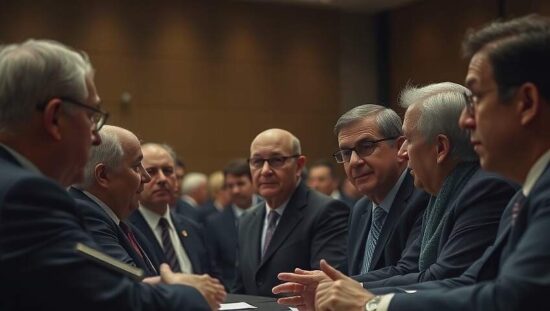The German opposition Green Party politician, Anton Hofreiter, has publicly urged Chancellor Friedrich Merz of the Christian Democratic Union (CDU) to retract and apologize for recent disparaging remarks concerning Brazil, particularly ahead of his meeting with President Luiz Inácio Lula da Silva at the G20 summit in South Africa. Hofreiter emphasized that the meeting presents a critical opportunity for Merz to mitigate the reputational damage caused by his comments and to actively repair Germany’s standing on the international stage.
Hofreiter stressed the necessity of a respectful, peer-to-peer dialogue between the leaders in Johannesburg. He articulated a vision of Germany forging stronger alliances with democratic nations globally, prioritizing partnerships free from undue pressure from either the United States or China – a positioning that reflects a desire for increased strategic autonomy. The chairperson of the Bundestag’s European Affairs Committee underscored the significance of the absence of both the US and Chinese presidents at the summit, framing it as an opportunity for Germany to reinforce its commitment to multilateralism.
However, the CDU’s foreign policy representative, Jürgen Hardt, defended the value of G20 meetings, arguing that participation is ultimately a matter of individual leadership discretion. He downplayed the importance of state-level attendance, highlighting the critical role of technical coordination and the necessity of fostering pragmatic cooperation across diverse policy areas, which he suggested did not inherently require the presence of heads of state. Hardt further asserted that the political level of representation in Johannesburg remains robust and that Chancellor Merz should capitalize on the opportunity.
The controversy stems from Merz’s comments about Belém, Brazil, the host city for a recent climate conference, which were interpreted by President Lula da Silva as a denigration of the region’s quality. Lula’s sharp rejoinder – that Berlin itself possessed only a fraction of Belém’s quality – further underscored the escalating tensions. This exchange underscores a broader debate surrounding Germany’s diplomatic approach to emerging democracies and the delicate balance between acknowledging developmental disparities and preserving respectful international relations. The upcoming meeting promises to be a crucial test of Germany’s ability to navigate these sensitive diplomatic currents.





